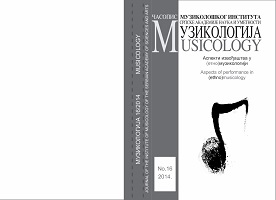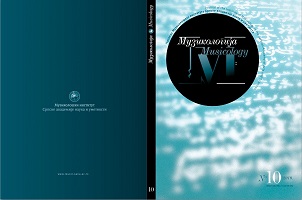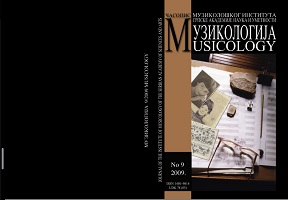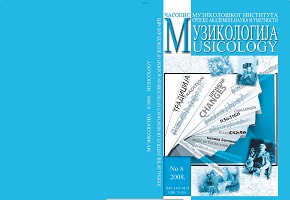Author(s): Aleksandar Vasić / Language(s): Serbian
Issue: 9/2009
The Music Herald was the first music magazine to appear in Belgrade after WWI. It was published monthly, for a year (January – December 1922). Its editor-in-chief was Petar Krstić, a composer. Other members of the editorial staff were Božidar Joksimović, Stevan Hristić, Kosta Manojlović (composers), Vladimir R. Đorđević (an ethnomusicologist) and Jovan Zorko (a violinist). Over 200 articles were published in the magazine. It dealt with different genres of music writings, such as articles, treatises, documents on the history of Serbian / Yugoslav music, music criticism, polemics, necrologies and bibliographies. Twenty-four compositions by native composers were published in the musical supplement of The Music Herald, among them the works of its editors as well as those of other Yugoslav musicians. The Music Herald dealt with three fields of interest: music historiography, ethnomusicology and the current topics of its epoch. When the magazine started, Serbian musicology was in its initial stage so the editors were trying to foster its development. They published numerous biographies of Serbian 19th century musicians, as well as documents on Serbian music culture during the reign of Prince Miloš Obrenović. Music folklore was also very often the subject of interest in the magazine. The Music Herald was interested in current topics and covered the Yugoslav music school system, opera houses, military music, music associations, etc. It was especially interested in choral societies, which in the course of the 19th century took up not only an artistic, but also a political and patriotic role in the liberation movement. After WWI, choral societies entered a period of crisis. Their political raison d’être was lost, so they were faced with the challenge of achieving higher professional standards. This study deals with two aspects of “The Music Herald”: aesthetic and ideological aspects. In terms of ideology, the magazine was strongly in favour of the Yugoslav idea. Its correspondents (more then 40 of them) came from all parts of the Kingdom of Serbs, Croats and Slovenes, as well as from abroad (Poland). The music culture of the Serbs, Croats and Slovenes was treated with equal enthusiasm. The articles were published in both Cyrillic and Latin script, and in two languages (Serbo-Croatian and Slovenian). The editors of The Music Herald were also Slavophiles. They wrote about Czechoslovakian and Polish music, and also covered the works of Russian musicians who had emigrated to Yugoslavia after the October Revolution in 1917. The so-called “national style” was fostered in The Music Herald, because it was believed by the editors to be the future of Serbian and Yugoslav music. Avant-garde music was treated with suspicion, although on one occasion a defense of contemporary music by Stanislav Vinaver, a writer and a music critic, was published. On the other hand, fostering the “national style” did not mean that moderate means of expression sufficed for the positive evaluation of a certain music piece. That is why the compositions of Petar Stojanović were judged as “drawing-room music”. Although it lasted for just one year, The Music Herald has an important place in the history of Serbian music periodicals. Its orientation towards music historiography is, in this respect, especially important. It blazed the trail for the Serbian musicology in its dealings with unknown music data in the past.
More...




